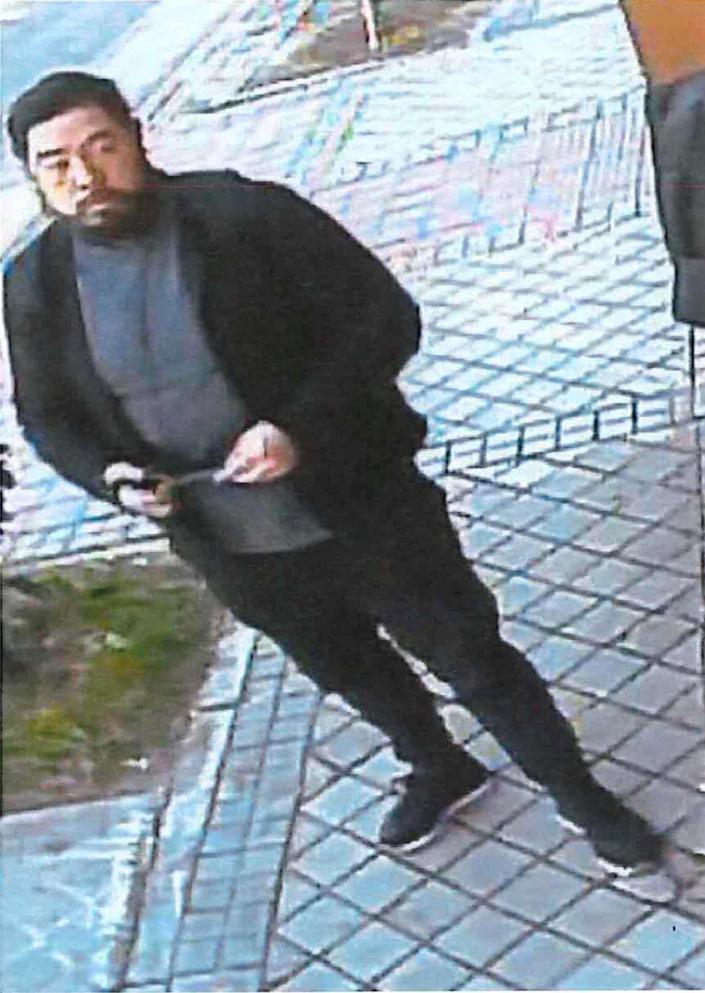A federal judge has ruled that a U.S. Marine veteran who participated in a 2019 raid on the North Korean embassy in Madrid is eligible for extradition to face trial in Spain. But in the same ruling, the judge said she hopes a higher court intervenes because she fears North Korea might kill the man if he leaves the U.S.
The unusual decision is the latest turn in the case of Christopher Ahn, who has claimed that he entered the embassy in a bid to help North Koreans who wanted to defect.
“In part because of his participation in the embassy incident, North Korea wants to kill Ahn,” U.S. Magistrate Judge Jean Rosenbluth wrote in her ruling.
“I must decide whether to certify his extradition to Spain, where North Korea can much more easily murder him. Although I conclude that the law requires me to certify, I do not think it’s the right result, and I hope that a higher court will either tell me I’m wrong or itself block the extradition.”


Ahn, 41, who is out on bail, was ordered to surrender to the custody of the U.S. Marshals Service. But he could delay the process by filing a last-ditch challenge to the extradition decision, officials said.
Barring further legal developments, his fate ultimately lies in the hands of the State Department. A spokesperson said it does not comment on extradition matters.
Ahn’s lawyers did not respond to a request for comment. In an interview with Fox News last year, Ahn expressed frustration with the government’s handling of his case.
“The same Department of Justice that has told me that if I leave the country that I could be assassinated is the same Department of Justice that’s trying to extradite me,” he said. “It’s very disappointing.”
A spokesman for the U.S. Attorney’s Office in Central California declined to comment. Spain’s embassy in Washington did not immediately respond to a request for comment.
Ahn was among a group of men affiliated with Free Joseon (Free Korea), a group opposed to the North Korean regime, who stormed the embassy in Madrid in February 2019. After roughly four hours, they left the building with computer drives, a cellphone and other electronic information — which they later turned over to the FBI, according to court documents.
Spanish authorities have accused Ahn and nine others of entering the embassy on a false pretext, armed with knives, iron bars, machetes and imitation handguns. They then allegedly beat and threatened some of the embassy staff, placed hoods over their heads and tied their hands behind their backs before making off with computers and digital files, according to Spanish authorities.
Ahn returned to California after the incident and was arrested in Los Angeles in April 2019. Spain is seeking his extradition on six criminal charges, which carry a potential prison sentence of more than 10 years.
The Justice Department is honoring Spain’s extradition request. In court papers, government lawyers said there is probable cause to believe that Ahn committed the offenses and the U.S. is obligated to surrender fugitives under the circumstances defined in its extradition treaty with Spain.
Ahn argued that he entered the embassy with the others because they had received word that one or more of its residents wanted help defecting, according to court papers. Those people had asked the members of Free Joseon to stage a kidnapping so that their family members would not face reprisal in North Korea, Ahn said in court papers.
In her 52-page ruling, Rosenbluth acknowledged the murky nature of the case but said the government had established probable cause to believe that the group who entered the embassy that day committed crimes there. She referred to police and witness testimony as well as the account of a woman who suffered serious injuries after jumping from the embassy’s terrace to escape the intruders.
But Rosenbluth also expressed sympathy for Ahn, who served in the Marines for six years and had no criminal record at the time of the embassy raid.
“No one disputes that he has devoted a good portion of his life to helping others, including in our U.S. military,” the judge wrote.
“As noted, some have speculated that the CIA was behind the embassy raid. One can imagine many reasons why, if that were true, the United States would not admit it. But even assuming Ahn was acting at the direction of his country and not simply to help those trapped in an evil empire, that’s only but another reason why that same country shouldn’t shove him into Kim Jung-Un’s grasping arms.”
Rosenbluth added: “Yes, Ahn should have to face a court reckoning of some kind for possibly violating at least the letter of the law. But he should not be cast off to face an uncertain fate at the hands of a despot, perhaps sacrificed to advance a foreign-policy agenda.”
The judge also noted that the FBI confirmed that North Korea had called for Ahn’s execution.
Among the people who testified at an extradition hearing for Ahn in May 2021 was the mother of Otto Warmbier, a University of Virginia college student who died after being imprisoned by North Korea and released by the country in a coma in 2017.
Cindy Warmbier explained to the court that she and her husband were repeatedly told by the State Department that their son would be OK, “only to have him finally returned in a vegetative state, to die soon after,” Rosenbluth wrote.
“Yes, this and the other examples of North Korea’s insatiable vengeance are anecdotal, but because of our nonexistent relations with North Korea — again, a nation we have declared a state sponsor of terrorism — the limited anecdotal information available carries outsized weight,” Rosenbluth added.




